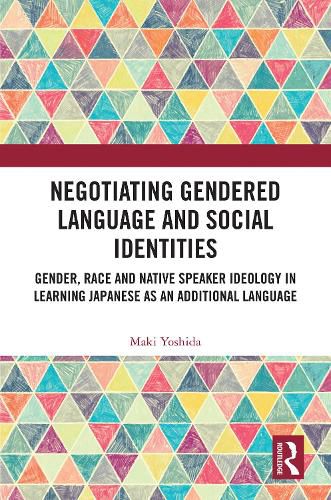Readings Newsletter
Become a Readings Member to make your shopping experience even easier.
Sign in or sign up for free!
You’re not far away from qualifying for FREE standard shipping within Australia
You’ve qualified for FREE standard shipping within Australia
The cart is loading…






This book explores gendered language and gender identities negotiated by seven tertiary students of Japanese as an additional language (JAL) in Australia. It demonstrates that while participants are familiar with gendered Japanese as linguistic resources, their self- positioned and ascribed 'learnersness', 'nonnative-speakerness' and 'non- Japaneseness' both inside and outside classroom contexts greatly impact the targeted negotiations. It argues that these ascribed social identities encourage participants to adopt 'correct' (gendered) Japanese; however, what exactly this 'correctness' means differs for each JAL participant, depending on their other reflective and perceived social identities-such as gender, age, class, race and English 'native- speakerness'.
This book draws on the conclusions on the implications of discourses and practices concerning native- speaker status, gender and race in Japanese language education. While the initial focus is on gendered Japanese and gender identity, this book subsequently expands that the participants' negotiation of gendered Japanese and gender identity is complicatedly intertwined with negotiations of other social identities such as native- speaker status, race and age, with native-speaker status saliently affecting the way they position themselves and are positioned by their interlocutors. This book analyses the participants' language resources, spoken and/ or written Japanese interactions and one-on-one and focus- group interviews and presents easily understood findings for readers who are interested in SLA, Japanese, language and/ or identity studies.
This is the first book to holistically examine Australia- based tertiary students' Japanese language learning experience and Japanese interactions with regards to (gendered) language, identities and discursive power relations in a global and multilingual world.
$9.00 standard shipping within Australia
FREE standard shipping within Australia for orders over $100.00
Express & International shipping calculated at checkout
This book explores gendered language and gender identities negotiated by seven tertiary students of Japanese as an additional language (JAL) in Australia. It demonstrates that while participants are familiar with gendered Japanese as linguistic resources, their self- positioned and ascribed 'learnersness', 'nonnative-speakerness' and 'non- Japaneseness' both inside and outside classroom contexts greatly impact the targeted negotiations. It argues that these ascribed social identities encourage participants to adopt 'correct' (gendered) Japanese; however, what exactly this 'correctness' means differs for each JAL participant, depending on their other reflective and perceived social identities-such as gender, age, class, race and English 'native- speakerness'.
This book draws on the conclusions on the implications of discourses and practices concerning native- speaker status, gender and race in Japanese language education. While the initial focus is on gendered Japanese and gender identity, this book subsequently expands that the participants' negotiation of gendered Japanese and gender identity is complicatedly intertwined with negotiations of other social identities such as native- speaker status, race and age, with native-speaker status saliently affecting the way they position themselves and are positioned by their interlocutors. This book analyses the participants' language resources, spoken and/ or written Japanese interactions and one-on-one and focus- group interviews and presents easily understood findings for readers who are interested in SLA, Japanese, language and/ or identity studies.
This is the first book to holistically examine Australia- based tertiary students' Japanese language learning experience and Japanese interactions with regards to (gendered) language, identities and discursive power relations in a global and multilingual world.